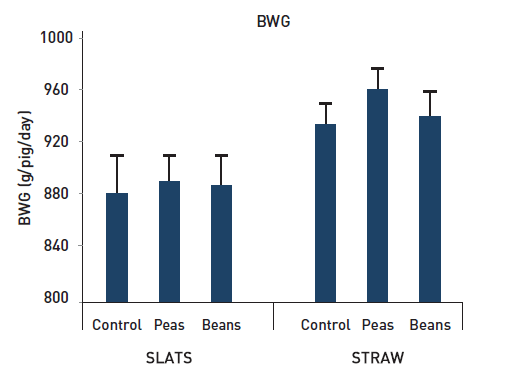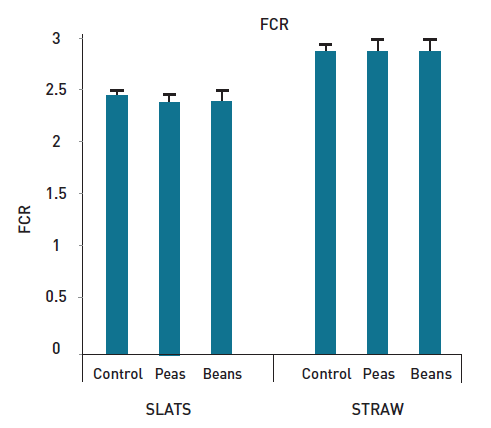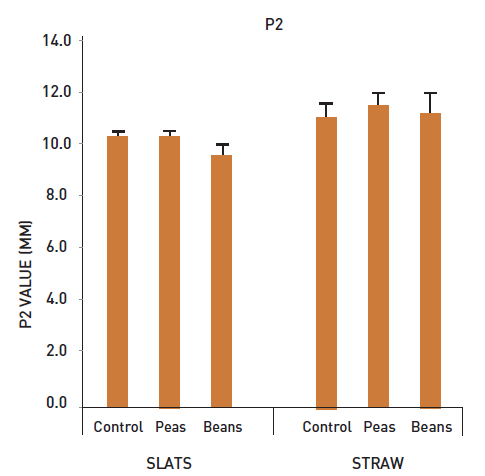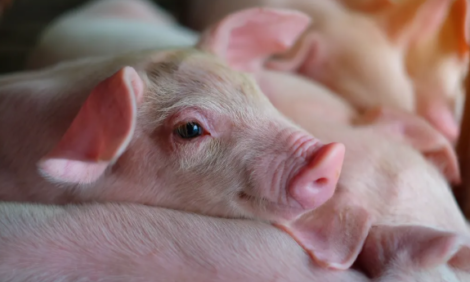



Home-Grown Peas and Faba Beans Can Replace Soybean Meal in Commercial Pig Diets
The results showed that both bean and pea diets resulted in similar body weight gain and feed conversion ratio to that seen in animals offered the control diet, according to a report from SAC in the QMS Research and Development Report for 2011-12.The Problem
The UK relies heavily on imported soybean meal (SBM) to supply the livestock feeding industries and particularly the pig and poultry industries. However, this is not sustainable and alternative animal feed proteins need to be identified and assessed.
Why Was Work Needed?
There are alternative sources of animal feed protein such as peas and faba beans which can be grown in the UK. However, there is a need to assess whether these protein sources can be used to replace soybean meal in grower and finisher diets for pigs produced under commercial conditions.
What Has Been Achieved?
A large-scale demonstration trial was conducted on a
commercial farm using 1,230 grower and finisher pigs
(35-110kg) kept on slats or straw.
The pigs were offered one of three types of pelleted
feeds:
- SBM diet ('control')
- 30 per cent faba beans, no SBM ('bean')
- 30 per cent peas, no SBM ('pea')
The growth performance, health, cleanliness and
carcass quality (P2 value and lean meat percentage) were
measured in all animals.
The health and cleanliness of the pigs were not
affected by the diet offered.
The results showed that both bean and pea diets
resulted in similar body weight gain (Figure 1) and
feed conversion ratio (Figure 2) to that seen in animals
offered the control diet.
Figure 1. Body weight gain (BWG) in pigs offered different diets and housed on different bedding
(Values are presented as averages with the bars representing the standard errors)
Figure 2. Feed conversion ratios (FCR) in pigs offered different diets and housed on different bedding
(Values are presented as averages with the bars representing the standard errors)
Figure 3. Back fat depth as measured at the P2 position in pigs offered different diets and housed on different bedding
(Values are presented as averages with the bars representing the standard errors)
The carcass quality as assessed by P2 measurement and lean meat percentage was similar between the groups, and average P2 values (Figure 3) were within commercial limits (12mm) for premium carcass payments.
Benefits to Farmers
The trial results suggest that feeding peas or faba
beans to grower and finisher pigs has no significant
effect on weight gain, feed conversion efficiency, P2
back fat depth or lean meat percentage.
Hence, peas or faba beans may be a suitable alternative source
of protein to soybean meal in the diet of grower and
finisher pigs.
October 2012








